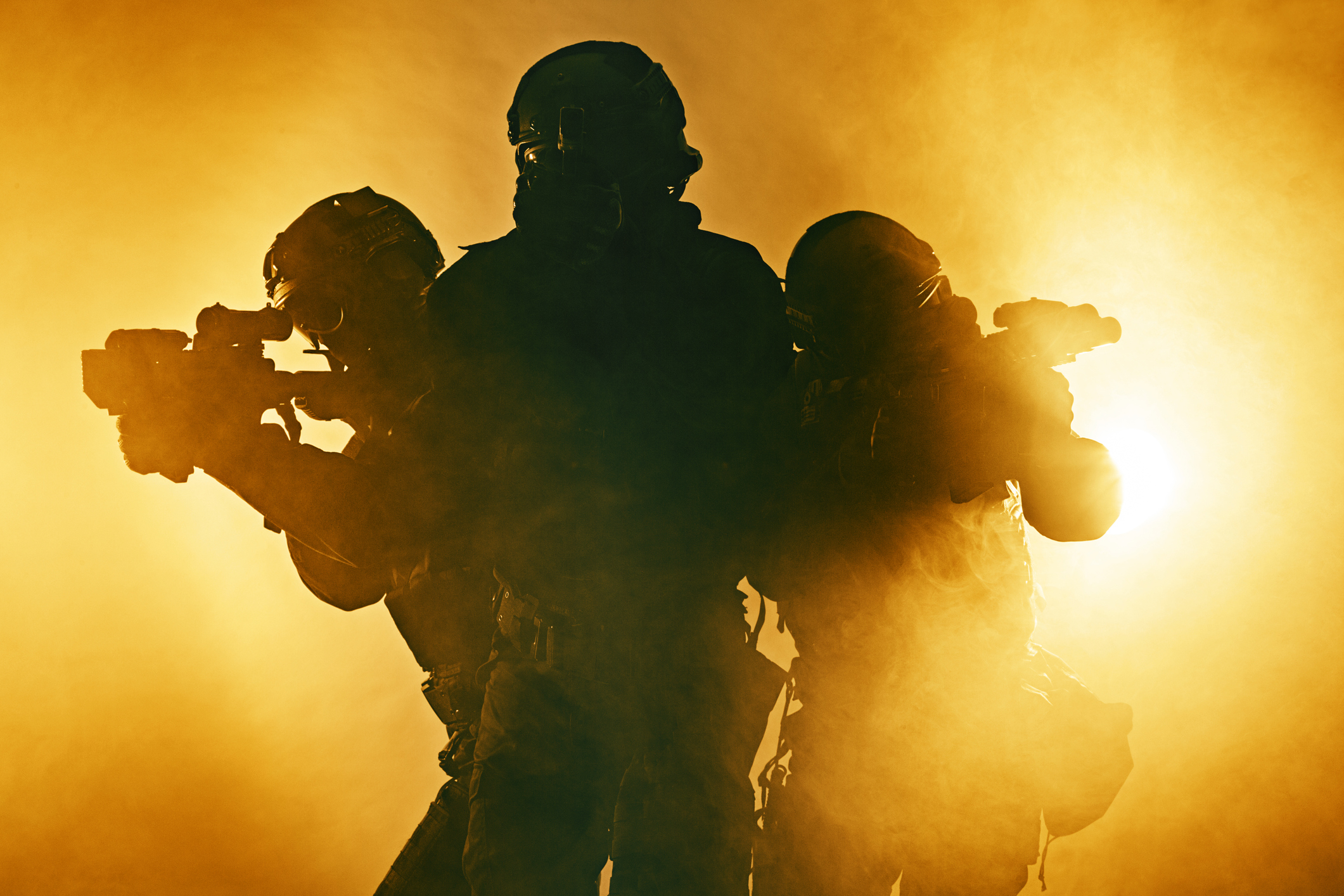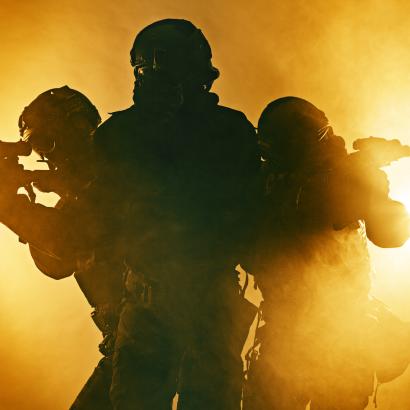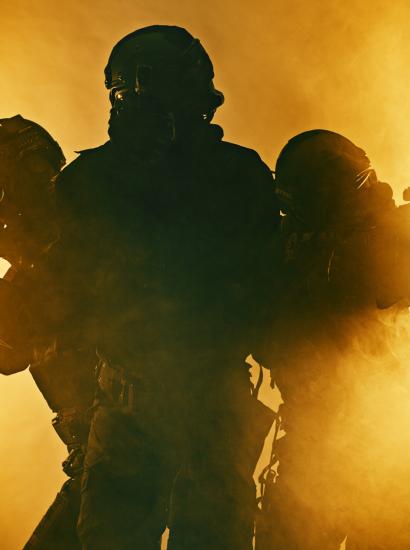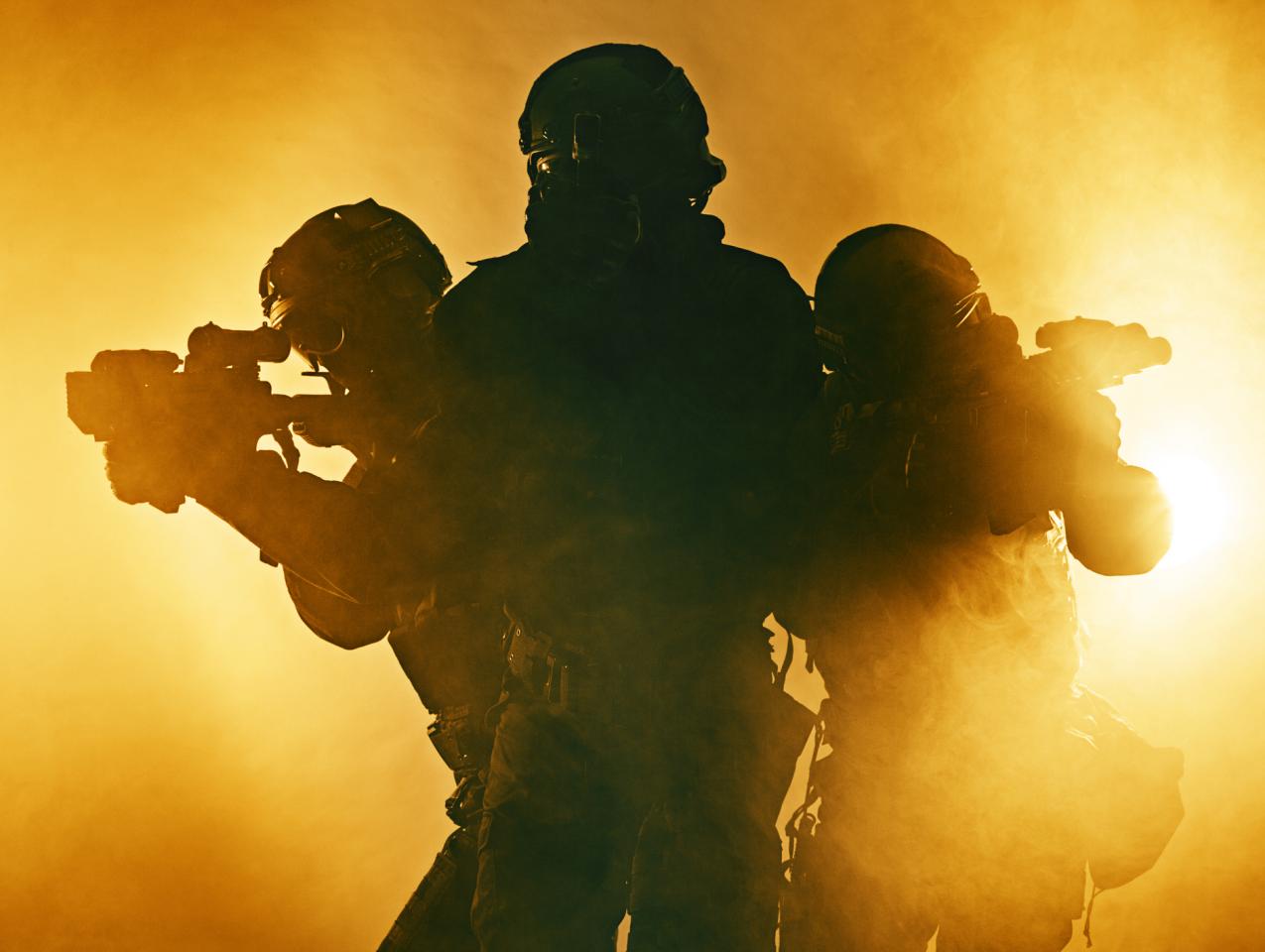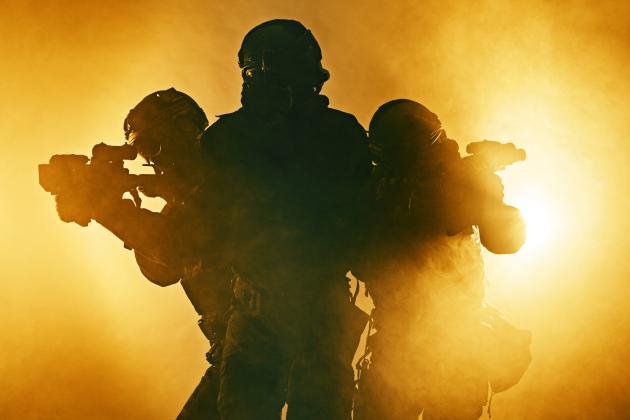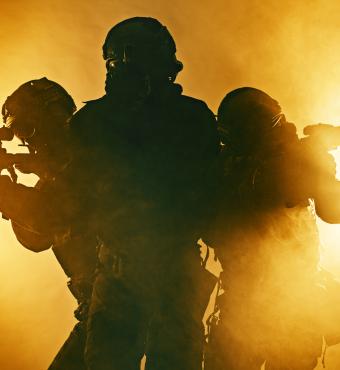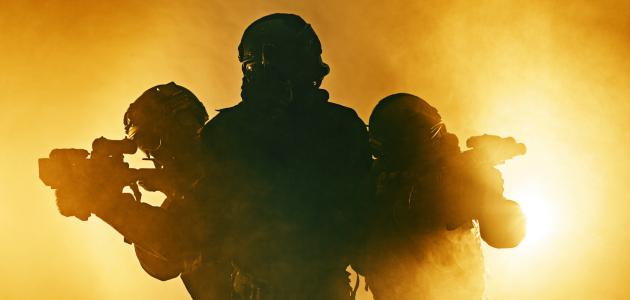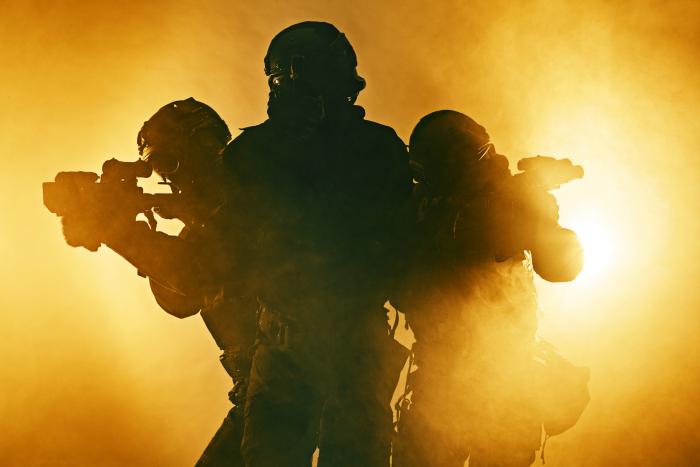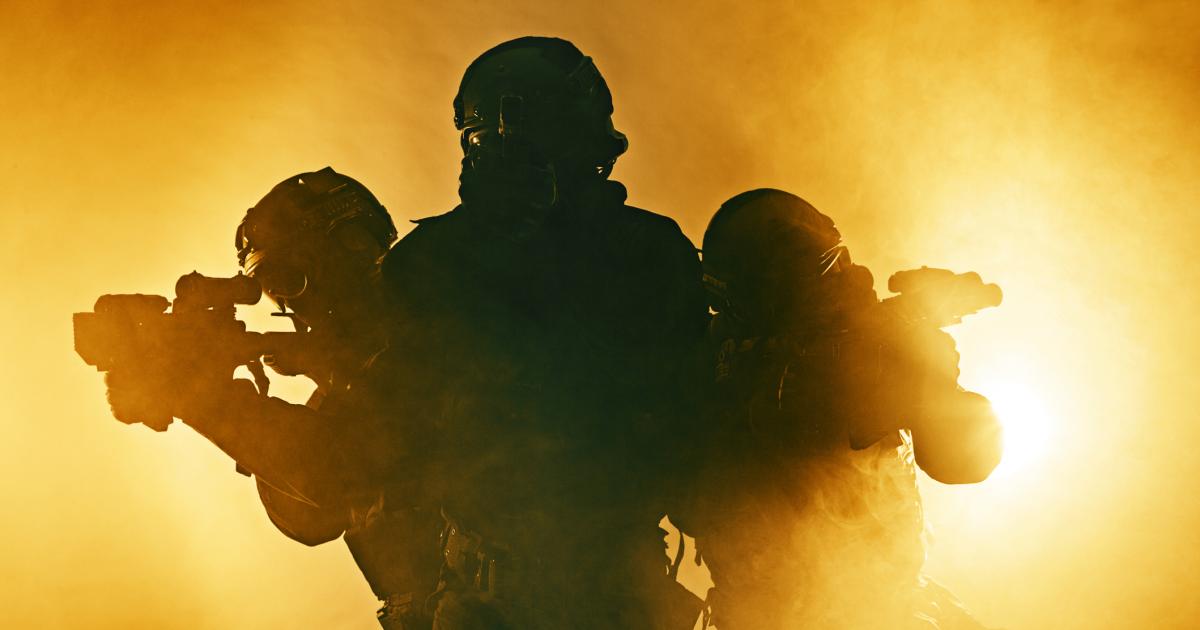- History
- Military
What most often prevents wars from being won? Worry over nuclear weapons? The cost of modern weaponry, medical care, and matériel that makes prolonged wars expensive? Media coverage depictions of war’s savagery that repels the public? No. It is modernity’s disordered and idealistic worldview that forbids the violence necessary to humble and crush an enemy. Only this prevents wars from being won: the will to accept evil exists, and the dirty hands required to defend against it.
Dirty Hands
Higgins: “It’s simple economics. Today it’s oil, right? In ten or fifteen years, food, plutonium, and maybe even sooner. Now, what do you think the people are going to want us to do then?”
Turner: “Ask them?”
Higgins: “Not now. Then. Ask them when they’re running out. Ask them when there’s no heat in their homes, and they’re cold. Ask them when their engines stop. Ask them when people who’ve never known hunger start going hungry. You want to know something? They won’t want us to ask them. They’ll just want us to get it for them.”[1]
It is an old story. One of realism versus idealism. Due to geography and innumerable other blessings, it is with extreme ease that Americans divorce themselves from war’s scourge. Americans, like Turner in the conversation above, can afford the luxury of a worldview that attempts to explain evil as an incongruity, one that mankind defeated long ago. Higgins knows better. With decades of clarity confronting evil across the globe, he accepts that state security requires dirty hands in a fallen world. Higgins understands human nature.
While there will always be a concern for the cost of war, none know what the future holds and what the circumstances might be when the cost must be paid. As Thucydides reminds us: “In peace and prosperity states and individuals have better sentiments, because they do not find themselves suddenly confronted with imperious necessities; but war takes away the easy supply of daily wants and so proves a rough master that brings most men’s characters to a level with their fortunes.”[2] The West casts value judgements with ease on the past, but our comfortable armchairs do not provide the appropriate vantage point to witness the sobering realities of life on the frontline, such as Ukraine, Middle East, or the African Sahel and Great Lakes regions. But we should not require those reminders since war is the story of Western Civilization.
Ancient Mediterranean Milieu
The ancient Mediterranean was the frontline. It is too convenient and ahistorical to construct antiquity as one of conquest and ignorance. Men and women faced death and pain from birth to a degree we cannot fathom. Infant mortality was circa 30 percent and people died from infections and disease with scant scientific explanation. Death in war was one of a multitude of ways to die. War was omnipresent. Yet, “The corpse itself inspired little horror,” finds Robert Garland.[3] The ancient Greeks believed life is stasis—struggle, conflict, strife. Around 700 BC, whilst reflecting on stasis, Hesiod concludes that stasis “encourages war and evil battle, wretched; no man loves her, but by necessity, through the will of the deathless ones, they honor the oppressive Strife.”[4] Hesiod is right: life is stasis. The deathless ones—the gods—shaped the world. Accept it.
Their worldview was more honest about the defensive measures the state needs to protect citizens from violence. The Assyrians, Babylonians, Egyptians, Greeks, Persians, and Romans all fought continuous internal and external wars for survival, but nonstate actors from the frontiers also waged endemic warfare. Thus, war was not bound by any theological, sociocultural, or political strand. Stasis entwined all. The less we seek history’s wisdom, the deeper we succumb to false narratives of the human condition. It is a matter of acceptance. Millenia of proximity is no excuse.
Libido Dominandi
St. Augustine understands the crucial aspect preventing perpetual peace: mankind’s libido dominandi (lust to dominate). Throughout his life Augustine struggled with how a moral man confronts an immoral world, but with Rome’s sack in AD 410, it was then he grasped the full weight of our fallen nature as he constructed his masterpiece, City of God, where he asserts, “Even peace is a doubtful good, since we do not know the hearts of those with whom we wish to maintain peace, and even if we could know them today, we should not know what they might be like tomorrow.”[5] Augustine acknowledges that man can only battle against the libido dominandi, but never extinguish it…it is a temporal reality we accept in our fallen world.
It is a matter of Higgins versus Turner. The father of history agrees. Herodotus ends The Histories with praise not for a Greek, but a Persian, King Cyrus the Great, who warns, “Soft countries…breed soft men. It is not the property of any one soil to produce fine fruits and good soldiers too.”[6] An exhaustive intelligence analysis of the adversary’s order of battle, a plethora of hypersonic weapons, and innovative quantum processors are useless without the will to use them in defense of America from those who lust to dominate her.
[1] Three Days of the Condor, dir. Sydney Pollack (Paramount Pictures, 1975).
[2] Thucydides, History of the Peloponnesian War in The Landmark Thucydides: A Comprehensive Guide to the Peloponnesian War, ed. Robert B. Strassler, trans. Richard Crawley (New York: Free Press, 1996), 199 (III.82).
[3] Robert Garland, The Greek Way of Death, 2nd ed. (Ithaca: Cornell University Press, 2001), 122.
[4] Hesiod, Works and Days in The Poems of Hesiod: Theogony, Works and Days, and the Shield of Herakles, trans. Barry B. Powell (Oakland: University of California Press, 2017), 109 (15–17); see also, Theogony, 45 (179–186).
[5] St. Augustine, Concerning the City of God against the Pagans, trans. Henry Bettenson (New York: Penguin, 2003), 858 (XIX.5).
[6] Herodotus, The Histories, trans. Aubrey de Sélincourt (New York: Penguin, 2003), 603 (IX.122). It is important to note, de Sélincourt was a First World War combat veteran who fought during the Gallipoli campaign, became a fighter pilot, was shot down, and then endured Holzminden prisoner-of-war camp for over a year. After the war he returned to Oxford and became a beloved teacher and writer.







